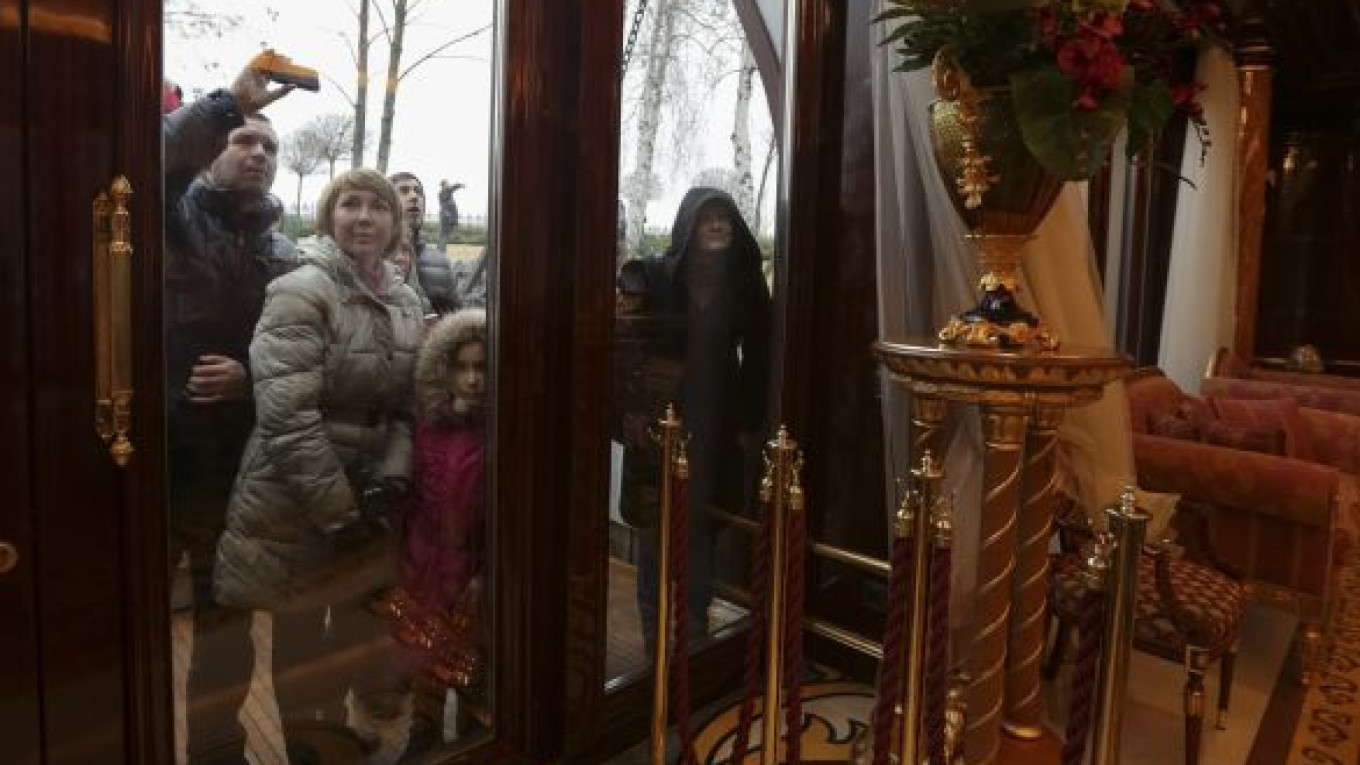KIEV — Big and burly with two convictions for assault, Viktor Yanukovych is hard to miss. But after a day of high drama and intrigue, the whereabouts of the ousted Ukrainian president were a mystery.
One report had him ejected from a charter flight at Donetsk airport in his native east. An aide said he had been in the northeastern city of Kharkiv all day, though he failed to appear at a meeting of regional governors. A taxi driver in Kiev swore he was in the United Arab Emirates.
The mystery did little to help loyalists who stuck to the line that their leader was still the president, even after parliament voted to remove him in the climax to three months of turmoil and several days of carnage over Ukraine's allegiance to Europe or Russia.
"We have a legitimate, living president, we just do not know where he is," Oleh Tsaryov, a member of Yanukovych's Party of Regions, said grimly on Russian television.
The smart money was on Donetsk, an industrial region and political power base of the Russian-speaking leader. But even there, 63-year-old Yanukovych is unlikely to roam free for long.
Protesters in Kiev's Independence Square, mourning dozens of their number who were shot dead in two days of gun battles this week, were baying for his head. Hundreds invaded the grounds of his sprawling residence outside the capital, gawping at its opulence and the Australian and African ostriches stretching their legs in his private zoo.
In Donetsk, Yanukovych might expect to count on the protection of local oligarch Rinat Akhmetov, Ukraine's richest man and chief financier of Yanukovych's party.
But despite a shared passion with Yanukovych for local soccer club Shakhtar Donetsk, Akhmetov may find his interests best served in fealty to the new order.
"The best way for Akhmetov to get close to the new authorities is to give Yanukovych up," said Volodymyr Fesenko, a political analyst at the Kiev-based Penta think tank. "For Yanukovych, even Donetsk is not secure."
Belarus, Maybe?
Yanukovych might decide blood is thicker than water, and seek refuge with his eldest son, Oleksander. A dentist by trade, Oleksander is part of what is known in Ukraine as "The Family", a coterie of relatives and friends who grew rich under Yanukovych's rule since 2010.
In an interview in what looked like a hotel room, a shell-shocked Yanukovych told Ukrainian television station UBR he had no intention of fleeing the country.
Instead, he planned to tour the southeast, a region that includes the autonomous and majority ethnic Russian region of Crimea, home to Russia's Black Sea fleet.
If Yanukovych hunkers down there, and vows to fight, it will fuel suspicions of a plot to split the country along its historic linguistic and cultural fault line.
Interfax news agency reported, however, that two armed men had tried to bribe border guards to let Yanukovych fly out of Donetsk on a private jet, but were refused. Where was he heading?
Russia would seem an obvious choice. Yanukovych had done Moscow's bidding in turning his back on a deal to deepen ties with the European Union in November, the spark for a revolt that eventually brought him down.
But Russia, uncomfortable with the example being set in its backyard, had hardly disguised its impatience with Yanukovych's inability to extinguish the protests against him.
With $15 billion in funding on the table, Prime Minister Dmitry Medvedev said Thursday that Moscow did not want to deal with a Ukrainian leadership that people were "wiping their feet on like a doormat".
Yanukovych might find he gets a warmer welcome in neighboring Belarus, where veteran strongman Alexander Lukashenko took in Kyrgyz leader Kurmanbek Bakiyev after his ouster in 2010.
A Message from The Moscow Times:
Dear readers,
We are facing unprecedented challenges. Russia's Prosecutor General's Office has designated The Moscow Times as an "undesirable" organization, criminalizing our work and putting our staff at risk of prosecution. This follows our earlier unjust labeling as a "foreign agent."
These actions are direct attempts to silence independent journalism in Russia. The authorities claim our work "discredits the decisions of the Russian leadership." We see things differently: we strive to provide accurate, unbiased reporting on Russia.
We, the journalists of The Moscow Times, refuse to be silenced. But to continue our work, we need your help.
Your support, no matter how small, makes a world of difference. If you can, please support us monthly starting from just $2. It's quick to set up, and every contribution makes a significant impact.
By supporting The Moscow Times, you're defending open, independent journalism in the face of repression. Thank you for standing with us.
Remind me later.


